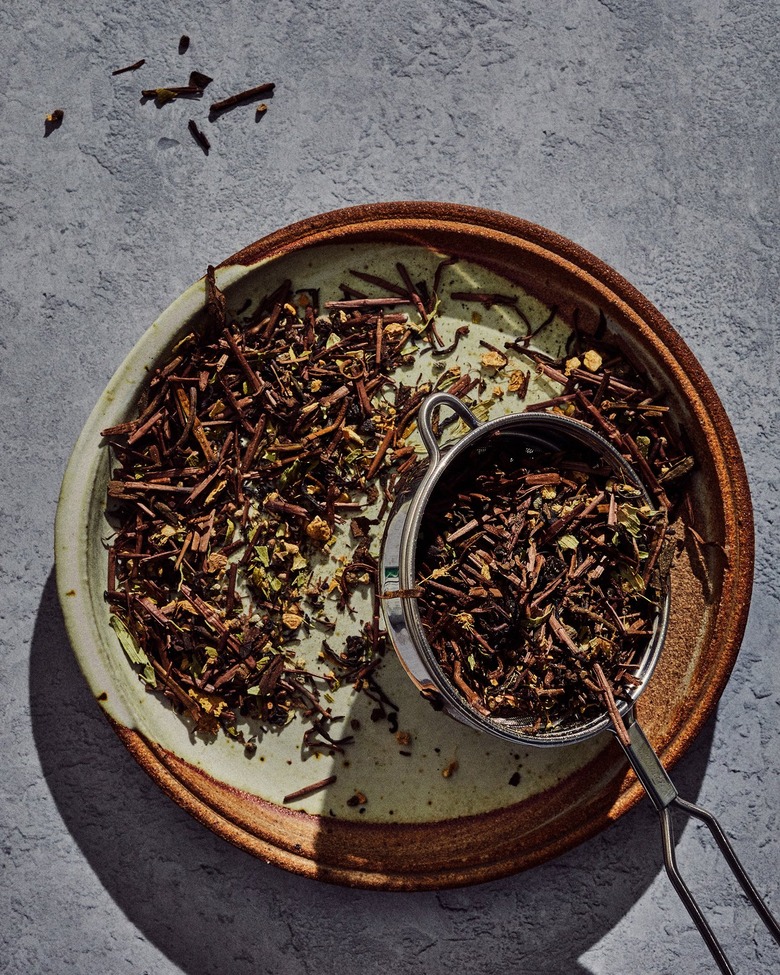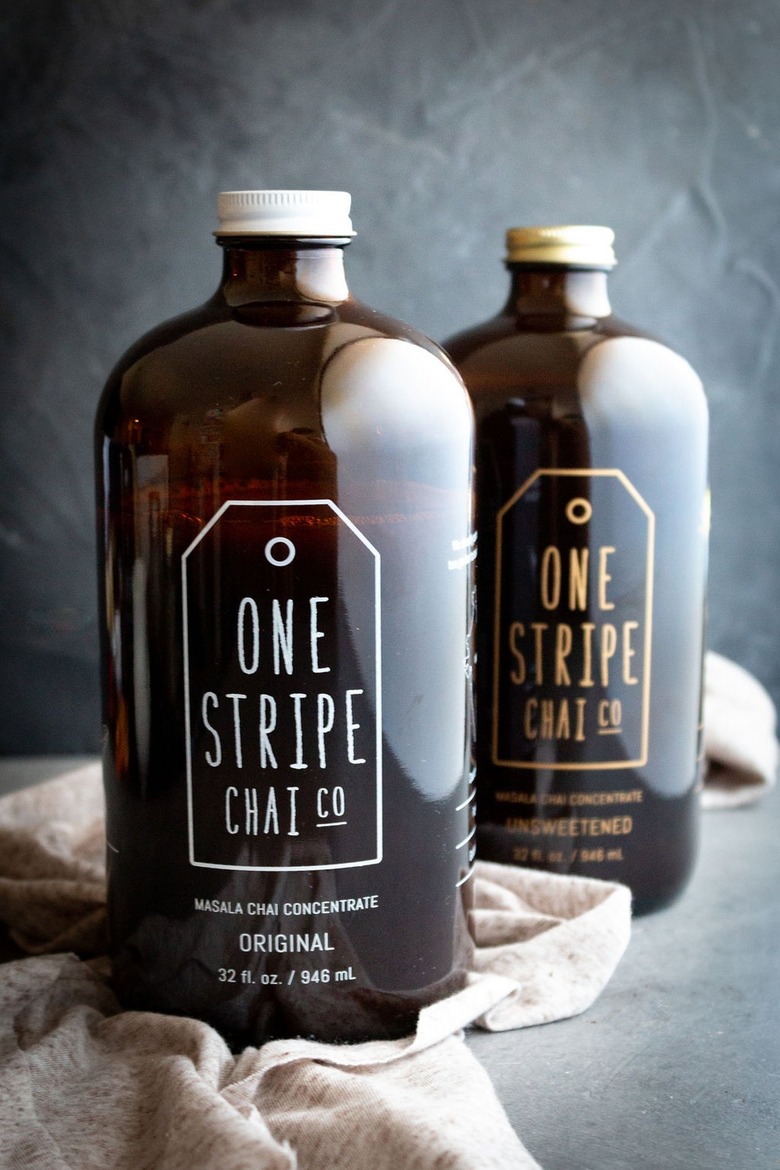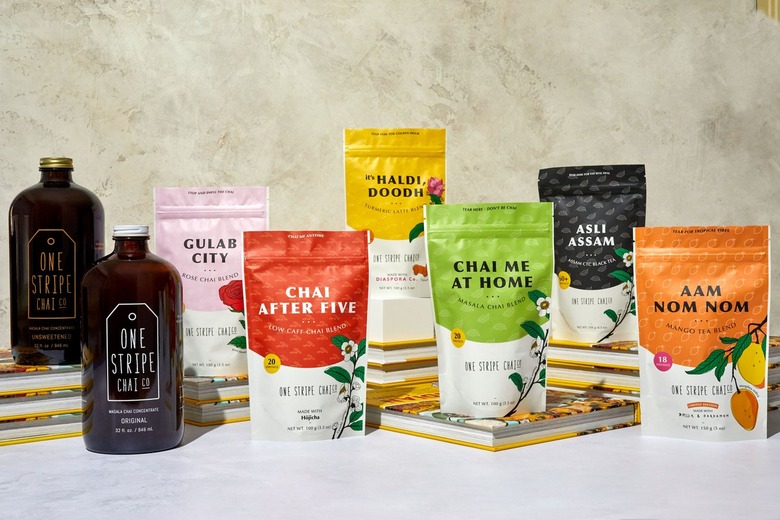Farah Jesani, Founder Of One Stripe Chai, On Cultural Authenticity In The Chai Industry
The culinary landscape of the U.S. is both beautiful and complex. On one hand, it's teeming with cultural diversity, as foods from around the world have found a spot at the table. On the other, this fare is often presented in a way that erases the cultural significance — and people — behind the food.
Farah Jesani, founder of the beverage brand One Stripe Chai, is all too familiar with this concept. As a person of Indian descent, she grew up drinking chai, a beverage that's an integral component of South Asian culture. However, while working as a barista in Portland, Oregon, she discovered that the chai offered in cafes not only tasted completely different — but lacked the cultural authenticity she associated with the drink.
"The chai served at coffee shops was always so disappointing, and nothing like the chai I had grown up drinking," Jesani tells Hunker. "Portland is at the center of coffee culture, [where] there is so much care put into how coffee is made," she adds. "I figured the same kind of attention would be given to chai, which more cafes were starting to serve."
Eventually, Jesani discovered the issue: Cafes, in general, don't have stoves. As a result, "they can't make chai the traditional way, which [involves] simmering tea and spices with milk or water in a pot on a stove," she explains. Instead, baristas have to rely on liquid concentrates to make chai.
Jesani also learned that, at the time, the chai concentrates on the market were not founded by South Asians. As such, these products "didn't capture the essence of the drink, leaving the 'chai tea' served in coffee shops completely bland or overly sweet," she says.
But as Jesani explains, "chai is more than a beverage — it's a way of life in South Asian culture. It's a constant presence in our lives, and it's a daily ritual of sorts." She adds that chai is also very communal, in that it brings people together. For example, in India, it's customary for people to enjoy chai at various gatherings, from casual catch-ups with family to weddings or Friday prayers.
There are also regional varieties of chai, and even among those, "there are family recipes that [are] passed down to younger generations," shares Jesani. "It's a deeply personal drink, one that binds an entire culture together."
Yet, in the U.S., chai has been boiled down to a singular offering void of cultural connection. Moreover, the beverage is often presented as "chai tea" in the U.S., which is inaccurate. "Chai is the word for 'tea' in Hindi," explains Jesani. So when people say "chai tea," they're actually saying "tea tea." (The more accurate term would be "masala chai," or "spiced tea," which is what most people in the U.S. think of when they hear the world "chai.")
Needless to say, as a barista, Jesani had witnessed firsthand how the cultural roots of chai were being ignored. It just so happened that, during this time, she was also thinking about starting a business. Initially, she thought of entering the coffee space due to her surroundings, but eventually, her focus shifted to chai and she set out to create a concentrate that tasted like the beverage her parents drank back home in India.
In 2015, Jesani launched One Stripe Chai as a side business and in 2018, she took it full time. Since then, her personal connection with her culture has evolved in a myriad of ways. She says, "I've learned so much about the history of tea in India, and how that plays a part in my own personal life as a Muslim woman of Indian heritage living in California."
What's more, Jesani directly sources tea from a small organic and biodynamic family-owned tea garden in Assam, India. Doing so has involved sourcing trips to India, something that has enabled her to explore the background of a drink that's been such a significant part of her life. This includes the complicated history of chai that, according to Jesani, most people in the U.S. are unaware of.
Case in point: "During the British rule of India, it was noted that tea grew wild in Assam, [which meant] the land was conducive to growing the plant," shares Jesani. "The British brought commercial tea cultivation and production to India to create a cheaper source for tea, which was becoming increasingly popular in Britain." Eventually, Britain began marketing tea to Indians, who often added spices and more milk — and so, the first versions of chai were born.
Of course, that's scratching the surface. But it shows how chai, like many cultural foods, is steeped in historical complexities, which are essential to the drink's narrative. And for people who are not part of South Asian culture, recognizing these stories is crucial for creating a space where cultural foods are genuinely honored and respected.
This can also be done by supporting small business owners who have a personal cultural connection to the food, should you have the means to do so. Such individuals, after all, are often part of marginalized groups that lack adequate support to thrive. "The odds are generally already stacked against marginalized cultures, and unfortunately, bigger brands aren't afraid of predatory approaches that create the illusion of authenticity," says Jesani.
Luckily, the world of culturally authentic products is growing by the day. As Jesani notes, there's been an uptick of food brands created by individuals who are proudly claiming their cultural identity. "Food is complex, and the conversation around authenticity and ownership is very nuanced. But that's exactly why people who understand that need to be a critical part of the creation," she says.
Hopefully, the rise of authentic products — along with the increasing awareness of diversity in the culinary scene — will continue to help consumers develop a more mindful, meaningful relationship with the cultural foods they've come to love.




